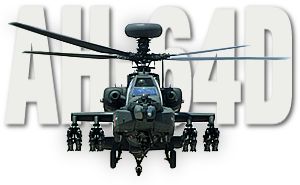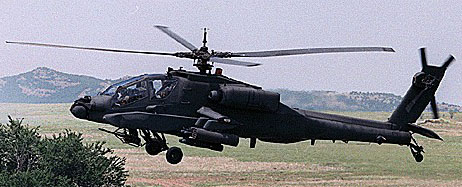

In 1996, the U.S. Army agreed to a five-year, multi-year contract with the former McDonnell Douglas for 232 remanufactured Apache Longbows. The contract will save the U.S. Army millions of dollars over the next five years and give it more aircraft compared to single-year funding over five years.
In addition, the Apache Longbow has the ability to fight more effectively at night and in adverse weather than any other helicopter in production, effectively proving its capabilities in U.S. Army mock battle tests. The Apache is the only multimission combat helicopter with this proven capability.
The twin-turbine engine, 197-knot (225-mph) Apache Longbow is the only helicopter in the free world capable of routine operations in daytime or darkness and in bad weather. The Apache Longbow uses laser, infrared and other high-technology systems to detect, classify and prioritize its armored targets and then to track and attack them. The Apache Longbow can be armed with 16 laser- or radar-guided Hellfire missiles, 76 70 mm rockets, or combination of both, and a 30 mm automatic cannon.
Apache helicopters have established themselves as fierce fighters, compiling excellent records in combat. AH-64A Apaches played a key role in the liberation of Kuwait. AH-64s fired the first American shots in the Persian Gulf War, destroying vital early warning radar sites and opening a corridor for the United Nations coalition's initial air strike during Operation Desert Storm.
Apaches also are credited with destroying more than 500 tanks and hundreds of additional armored personnel carriers, trucks and other vehicles during the war.
In 1989, Apaches also saw combat during the U.S. military action in Panama, where much of their missions were conducted at night.
And today, the AH-64A Apache is helping to keep the peace in Bosnia. The AH-64A's advanced sensors and sighting systems are proving effective in day and night reconnaissance of anti-government forces.
In total, 937 AH-64A Apaches have been delivered -- 821 to the U.S. Army and 116 to international customers, including Egypt, Greece, Israel, Saudi Arabia and the United Arab Emirates.
Additionally, the AH-64D Apached was selected in two major competitions in Europe Apaches -- one in the Netherlands for 30 aircraft and the other as a teammate of GKN Westland Helicopters Ltd. in the United Kingdom for 67 aircraft. This raised worldwide total orders to 1,034 Apaches.
The U.S. Army has combat-ready active Apache battalions in Germany, Korea and the United States. AH-64A-equipped National Guard units are in Arizona, Florida, Idaho, North and South Carolina, Texas and Utah.
